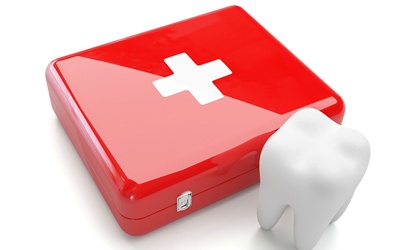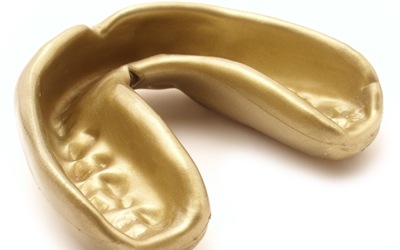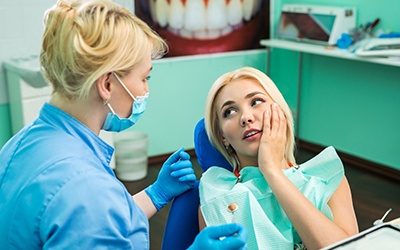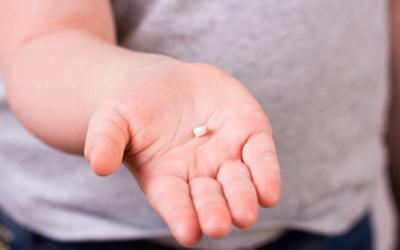
Emergency Dentist
We Help Patients Overcome Dental Pain

Dr. Maria Shahdad has over a decade of experience leading the team at DFW Absolute Dental in helping patients respond to dental emergencies. Residents of Allen, Texas know they can turn to us for personalized care in a state-of-the-art facility.
Whether you have had a tooth knocked loose playing backyard football or a dental infection is causing you severe pain, we can provide the immediate and attentive care you need – often on the very same day that you give us a call!
How to Handle Common Dental Emergencies
Toothache
Extruded Tooth
Abscess
Soft Tissue Injury
Chipped or Broken Tooth
Lost Filling or Crown
How to Prevent Dental Emergencies
Practicing excellent oral hygiene at home and regularly seeing a dentist in Allen for a preventive checkup can help you avoid infections that result in dental emergencies.
However, not all dental emergencies can be prevented, especially those caused by collisions or other unpredictable accidents. To reduce the risk of these types of dental emergencies, follow these precautions:
- Chew Carefully – Avoid chewing hard foods that can easily crack a tooth, such as popcorn kernels, hard candies or even ice cubes.
- Protect Your Teeth – If you play contact sports, always wear a protective mouthguard.
- Use Tools Not Teeth – Do not use your teeth to tear open packaging, even if it’s just a small bag of chips. Grab a pair of scissors instead!
The Cost of Treating Dental Emergencies

The consequences of every dental emergency are different, so the treatment costs will vary depending on your unique situation. However, treating dental emergencies in the moment will always cost less than trying to fight through the pain and allowing the problem to worsen over time.
If you suffer a dental emergency, do not wait to contact our team at DFW Absolute Dental. Dr. Maria Shahdad will be able to evaluate your unique circumstances, provide an accurate price estimate and – most importantly – deliver you the care you need.
Dental Emergency FAQs

When you need to see the emergency dentist in Allen, you’ll want to act quickly and decisively. That means you should already have the information you need to make good decisions that could potentially save your smile. Take the time to talk to Dr. Shahdad about potential dental emergencies, how you can avoid them, and what you should do in the worst-case scenario. Below are some common dental emergency FAQs to help you start preparing.
How Do I Know If I Have a Dental Emergency?
There isn’t any one telltale sign of a dental emergency, although pain and discomfort are common symptoms. If you notice any bleeding or have a loose, broken, or missing tooth, you should contact our office immediately. (A cracked or broken tooth won’t always hurt but usually requires urgent care regardless.) Severe pain that lasts longer than one or two days should also be taken as a potential warning sign. Dr. Shahdad and the rest of our team can advise you over the phone on controlling your symptoms, and we’ll do our best to schedule an appointment for you on the same day if possible.
When Do I Need to Go to the Emergency Room?
There are some kinds of dental emergencies where you should get in touch with a hospital emergency room as soon as possible. For example, if your jaw has been fractured, it could be part of a life-threatening head injury; in this situation, you should call the emergency room. For missing teeth and other emergencies that aren’t as severe but still require urgent care, you should make an appointment at DFW Absolute Dental. We have the training, experience, and technology needed to repair your teeth and prevent the damage from getting worse over time.
Is It an Emergency If My Child Knocks Out a Baby Tooth?
If a baby tooth is knocked out, you should save it and get to our office right away. Dr. Shahdad can check to see whether the entire tooth or just part of it has fallen out. Sometimes it’s safe to treat the tooth as if it fell out naturally, but in other cases we’ll need to take extra steps to make sure your little one’s oral development continues normally. For example, we might need to use a spacer to prevent the rest of their teeth from drifting into the gap so that there’s enough room for the adult tooth to safely erupt.
Will I Need to Have a Tooth Removed?
Extracting a tooth is always a last resort; our goal is to let you preserve your natural teeth for as long as possible. However, there are times when removal is the only choice, such as when an infection in the tooth has already grown too severe or when the tooth is too badly damaged to be repaired by a crown. We’ll use an appropriate form of sedation dentistry to keep you comfortable during the process, and we can help you find an effective replacement, such as a dental implant.

